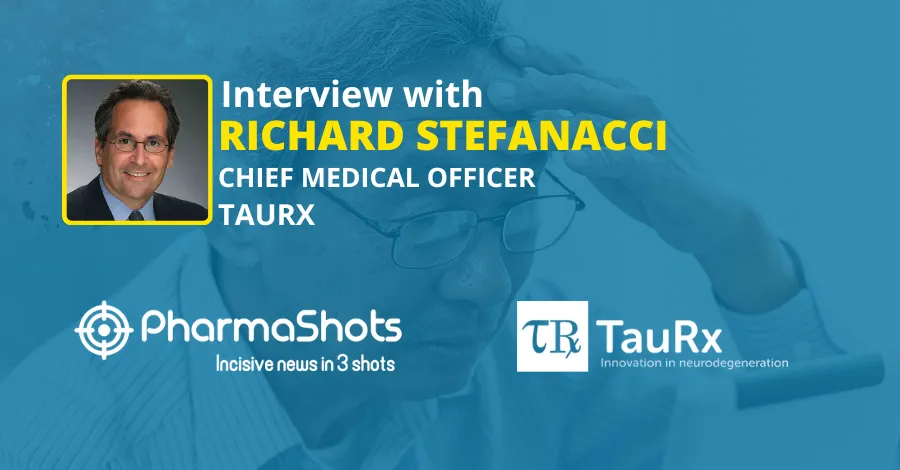
Natalie Shiff, Associate Medical Director, Janssen Rheumatology Shares Insights from the FDA Approval of Stelara to Treat Pediatric Patients with Active Psoriatic Arthritis
Shots:
- Natalie spoke about the study design and key findings from the P-III study evaluating Stelara for the treatment of pediatric patients with active psoriatic arthritis
- She also spoke about the patient support program that is executed by Janssen to support patients to get Stelara
- The interview gives an understanding of how Janssen is advancing its portfolio to improve the lives of patients suffering from autoimmune diseases
Smriti: Would you please discuss the study design of the P-III studies evaluating Stelara for the treatment of plaque PsO (PSTELLAR, CADMUS & CADMUS Jr) & PsA (PSUMMIT I & II)
Natalie Shiff: STELARA® (ustekinumab) is the first and only biologic targeting both cytokines interleukin (IL)-12 and IL-23, both of which play an important role in inflammation associated with immune-mediated diseases like psoriatic arthritis (PsA).
PSTELLAR, a Phase 3b, randomized, double-blind, active-controlled, multicenter study assessed the effect of extending maintenance dosing intervals beyond 12 weeks on the clinical efficacy and safety of STELARA in adult subjects with moderate to severe plaque psoriasis (PsO).
CADMUS, a Phase 3, randomized, double-blind, placebo-controlled, parallel, multicenter trial, evaluated the efficacy and safety of STELARA in adolescent patients 12 to 17 years of age with moderate to severe plaque PsO. A Phase 3 study called CADMUS Jr evaluated the efficacy and safety of STELARA in the treatment of pediatric patients 6 to 11 years of age living with moderate to severe plaque PsO.
Finally, two Phase 3 multicenter, randomized, double-blind, placebo-controlled trials of STELARA in adult subjects with active PsA, PSUMMIT I and PSUMMIT II evaluated the efficacy and safety of subcutaneously administered STELARA 45 mg or 90 mg at weeks 0, 4, and then every 12 weeks.
Smriti: Please give our viewers insights into the key findings obtained from the P-III studies that led to the approval of Stelara in pediatric population.
Natalie Shiff: The U.S. Food and Drug Administration (FDA) recently approved STELARA for the treatment of pediatric patients six years of age and older with active PsA based on pharmacokinetic (PK) data and extrapolation of the established efficacy and safety profile of STELARA in the multiple Phase 3 studies mentioned above (PSTELLAR, CADMUS, CADMUS Jr, PSUMMIT I and PSUMMIT II).
With the limited availability of pediatric PsA patients for inclusion in clinical trials, our researchers utilized an extrapolation approach based on previous PK, efficacy, and safety observations from a closely adjacent population of pediatric patients with moderate to severe plaque PsO who also had PsA, as well as adult patients with moderate to severe plaque PsO or active PsA.
An analysis of the data demonstrated that PK exposure of STELARA in these pediatric PsO patients with active PsA was consistent with that of Phase 3 clinical trials of STELARA in pediatric PsO patients without active PsA, as well as with adult patients with moderate to severe plaque PsO or adult patients with active PsA, while common efficacy endpoints were similar in these pediatric PsO patients with active PsA.
With this approval, two of the four indications for STELARA now include pediatric patients, further expanding its treatment profile since the first approval in 2009 for adults living with moderate to severe plaque PsO. Pediatric PsA is a rare, hard-to-treat autoimmune disease and we’re pleased to provide healthcare providers, young patients, and their families with a much-needed treatment option that has an established track record of safety and efficacy.
Smriti: Please provide some more details on the STELARA withMe patient support program along with its savings program. How does STELARA withMe support patients with psoriatic arthritis?
Natalie Shiff: At Janssen, we take a responsible approach to pricing that recognizes our dual responsibility to support patients today and develop cures for patients tomorrow.
STELARA withMe offers a comprehensive support program that helps patients get started on STELARA and stay on track. The program provides information on insurance coverage, potential out-of-pocket costs, and treatment support, and identifies options that may help make treatment more affordable, including the STELARA withMe Savings Program for commercially insured patients who are eligible.
Smriti: Are there any other drugs that your company is currently evaluating or has registered for approval as a treatment option for chronic autoimmune disease?
Natalie Shiff: This FDA approval embodies Janssen’s long-standing legacy of innovation and commitment to relentlessly advance care for the millions of people in the U.S. living with immune-mediated diseases. We are deeply invested in ensuring our youngest patients have access to additional treatment options and you can read more about our progress in pediatric research here.
Across our Immunology portfolio, we focus where the impact of disease on patients is highest and gaps in treatment remain greatest. We have an active and growing Immunology R&D program with 21 first-in-class programs in Phase 2 or 3 and are leveraging our pathways-based strategy to expand our pipeline.
In fact, we recently presented new data for our IL-23 inhibitor, TREMFYA® (guselkumab), from the DISCOVER clinical trial program demonstrating patients achieved long-term efficacy across the domains of active PsA, and a consistent safety profile with that in plaque PsO. Notably, in DISCOVER-2 TREMFYA-treated patients achieved consistent, long-term efficacy across active PsA domains – joint, skin, enthesitis, dactylitis, spinal pain, and disease severity endpoints – irrespective of baseline characteristics.
These data can help patients and healthcare providers make more informed treatment decisions, ultimately helping to reduce the daily burden of chronic diseases, like psoriatic arthritis.
Smriti: What are the upcoming/pipeline indications in which Stelara is being assessed?
Natalie Shiff: Janssen Immunology is committed to innovation and collaboration that will help patients with immune-mediated diseases navigate their treatment journeys, and we look forward to sharing additional research insights around STELARA, as well as new data contributing to the growing body of clinical evidence for TREMFYA.
Smriti: Are there any digital initiatives/solutions for patient engagement and adherence?
Natalie Shiff: Beyond the science, Janssen continues to collaborate with government, industry, advocacy and academia to raise awareness of immune-mediated diseases and supply patients and providers with information to support the development of individualized treatment plans that can help alleviate symptoms and improve outcomes.
We also understand that people of color face unique diagnosis and treatment challenges, which is why Janssen launched Determi-Nation to address inequities in care and co-create solutions for the communities we serve. As part of this initiative, we are currently working with a diverse group of healthcare professionals, patients, and advocates to leverage data and insights to inform the development of programs and resources that improve the patient and provider experience, shorten the time to diagnosis and provide better coordination of care for patients of color facing psoriatic disease.
Source: Canva
About the Author:

Dr. Natalie Shiff is the Associate Medical Director for the Rheumatology therapeutic area in US Medical Affairs at Janssen Immunology. She has 10+ years of experience as a pediatric rheumatologist. Dr. Shiff received a BSc from the University of British Columbia and her MD from the University of Calgary. She then completed her pediatrics residency at Memorial University in Newfoundland and returned to British Columbia for her pediatric rheumatology fellowship and a subsequent Clinician Investigator training program, during which she obtained her MHSc in Clinical Epidemiology.
Tags

Senior Editor at PharmaShots. She is curious and very passionate about recent updates and developments in the life sciences industry. She covers Biopharma, MedTech, and Digital health segments along with different reports at PharmaShots.













